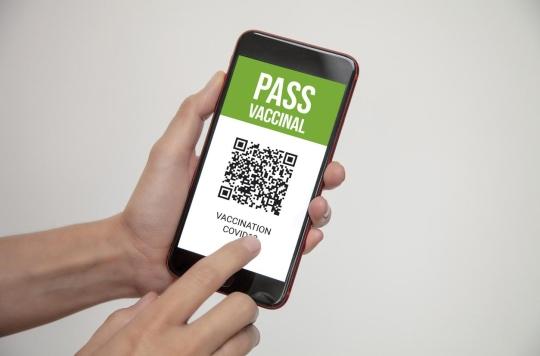After two eventful weeks, the deputies definitively adopted the bill establishing the vaccine pass on Sunday January 16. While waiting for the decrees, we explain to you what this will change and what impact this could have on vaccination.

- The deputies have definitively adopted the bill establishing a vaccination pass for people aged 16 and over. The law could be applied as early as January 20.
- To have a valid vaccination pass, it will be necessary to justify a complete vaccination schedule and a reminder carried out 4 months after its first dose from February 15.
End of twists. After two weeks of bitter debate in the hemicycle, Parliament adopted on Sunday January 16 the government bill establishing a vaccination pass.
The deputies voted with 215 votes for, 58 against, and 7 abstentions. If two referrals to the Constitutional Council are planned, one by the Socialist parliamentarians, the other by the France Insoumise (LFI) group, the government is counting on the promulgation of the law “by the end of the week”. “This text is based on what we know about the virus and what we have available to fight it effectively”declared Brigitte Bourguignon, Minister for Autonomy, at the rostrum of the hemicycle. “The French expect height from us”she added.
A tightening of the vaccination pass on February 15
Concretely, what will this new law change? If the health pass will remain in force for 12-15 year olds, the vaccination pass will replace it for those over 16 to be able to access restaurants, bars, leisure activities such as the theatre, cinema or sports halls. Access to TGV and other interregional transport, as well as to fairs is also affected by the vaccination pass.
To obtain it, it will be necessary to justify a complete vaccination schedule, that is to say one or two doses, depending on the vaccine. However, from February 15, you will also need to have received a booster dose four months after your second dose to keep your vaccination pass.
A profitable strategy to accelerate vaccination?
Thus, the entry into force of the vaccine pass, scheduled around January 20, has one objective: to strongly encourage the 4.9 million French people over the age of 12 who have not been vaccinated to receive their first injection.
But will this strategy pay off? On January 5, the Minister of Health Olivier Véran indicated to the National Assembly a recording of “66,000 new primary injections”. “If we do this for 70 or 75 days, we would have complete protection of the population against serious forms”he said then.
But these raw figures, which also take into account the vaccination of 5-12 year olds, are in reality more measured, since they include 20,000 injections carried out on children. On January 5, the first 38,000 doses were actually injected into children over 12 years old. As indicated by the HuffPostat this rate, “it would take 140 days for 100% of those over 12 to be vaccinated, almost double the 70 days mentioned by Olivier Véran”.
The risk of vaccination without adherence
It now remains to be seen whether the promulgation of the law on the vaccination pass will boost the first injections or not. However, for the sociologist Jérémy Ward, specialist in vaccine controversies, the introduction of the vaccine pass could certainly push the non-vaccinated to receive their two doses, but will not necessarily make them adhere to the vaccination. Such a strategy could even, in some cases, reinforce their distrust of the vaccine and the medical world.
And it is not the recent outing of the President of the Republic in The Parisian which is likely to convince the most refractory. By stating that he wanted “piss off even more” the unvaccinated, Emmanuel Macron “targets only his supporters (…) and risks further polarizing the population”Judge Jeremy Ward.
Above all, the researcher believes that this vaccination pass risks further marginalizing unvaccinated audiences, “e.g. immigrants, single women, very poor people”, “little present in the survey panels” and who have not been vaccinated, not by ideological choice, but for questions of access to the vaccine. “Those for whom it is very easy to buy medicine if they need it voted for this vaccine. More than 95% of them have been vaccinated or plan to do so. This proportion is only 82% among those for which it is very difficult to buy these drugs.”

.















